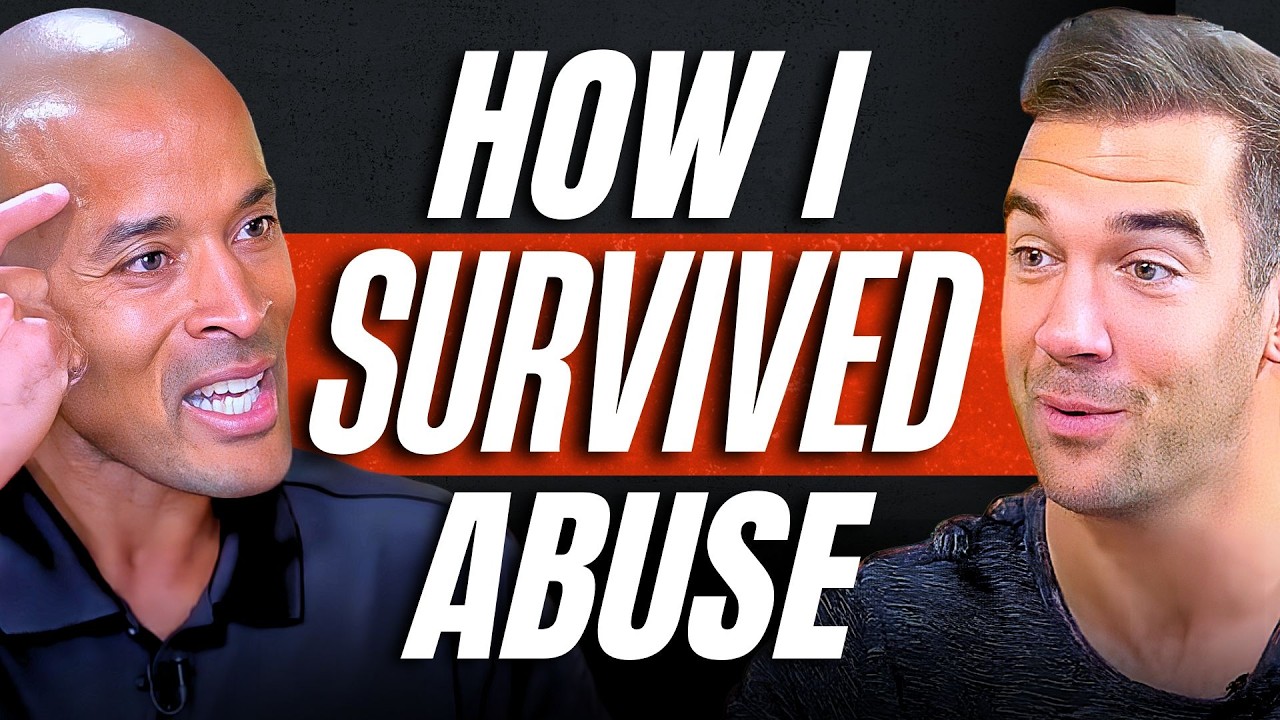David Goggins: “Those 2min 13secs Changed My Life!” Do THIS When Life KNOCKS You Down!

Here are the top 10 key takeaways from David Goggins' interview on the "School of Greatness" podcast, where he shares his extraordinary journey from pain to purpose and reveals the mindset that helped him defy impossible odds.
1. Embrace pain as a teacher
David Goggins views life's hardships as valuable teachers. He explains that failure, hell, disappointment, and discomfort are great learning tools that most people avoid. Goggins emphasizes that there's tremendous growth in confronting pain rather than escaping it.
His perspective shifted when he watched Rocky get up after being knocked down by Apollo Creed. That 2-minute scene changed his life because he saw what he wanted to become – not someone who always wins, but someone who keeps getting up after being knocked down. This philosophy has become his life's cornerstone.
2. Face yourself daily
The most significant breakthrough in Goggins' life was finding the courage to face himself. He discovered that what he was missing wasn't material possessions or external validation – it was self-confrontation. When you face yourself daily, you develop authentic confidence.
This process involves acknowledging your weaknesses without shame. If you're not smart, call yourself dumb and work to improve. If you're overweight, acknowledge it and change. This brutal honesty eliminates the need to seek validation from others because your confidence comes from within, knowing the hours, years, and decades you've invested in yourself.
3. The 40% rule
Goggins believes most people only tap into 40% of their potential. He pushes himself to live in the 90-99 percentile of his capabilities daily. This mindset developed from his experience of having a learning disability and needing to work exponentially harder than others to achieve the same results.
He explains that what appears to be extraordinary physical endurance actually stemmed from his academic struggles. When you must spend 10 hours learning something that takes others one hour, you develop incredible mental stamina. This work ethic transferred to physical challenges, where he realized through hard work you can outperform seemingly more talented individuals.
4. Visit your starting point regularly
Goggins emphasizes the importance of regularly revisiting your humble beginnings. He calls this "going back to scratch." When you accomplish things in life but are willing to mentally revisit where you started, you maintain perspective and continue growing.
He explains that as you achieve success, what you consider discomfort becomes minimal compared to your earlier struggles. By regularly reconnecting with your origins, you elevate your current level of achievement. This practice prevents complacency and keeps you hungry for growth.
5. Build mental calluses
For Goggins, mental toughness isn't something you sample occasionally – it's something you live in daily. Just as physical calluses form through consistent friction, mental calluses develop by consistently facing what makes you uncomfortable.
He learned this principle while training young SEAL candidates. Despite making them physically stronger and faster, the same number still quit during Hell Week. He realized they were producing "bigger, stronger, faster quitters" because they weren't developing mental toughness. Real strength comes from repeatedly facing your weaknesses and insecurities until they no longer control you.
6. Reflect on your journey
While pushing forward is essential, Goggins learned the value of reflection during a serious illness that left him bedridden. This forced pause allowed him to appreciate how far he'd come, something he had never done before despite his extraordinary achievements.
During this period of stillness, he realized he had traveled "8,000 miles" from his starting point but had never acknowledged it. This reflection brought him peace and confidence that outlasted his physical setback. He emphasizes that without reflection, you remain psychologically trapped in your past limitations even when you've objectively surpassed them.
7. You are your own hero
Goggins stresses the importance of being your own hero, leader, and master. We often idolize others, trying to become them while losing our unique potential in the process. When those role models inevitably fail, we waste time feeling disappointed rather than focusing on our growth.
By holding yourself accountable and focusing on becoming your best self, you avoid dependency on external validation. This self-reliance enables you to discover your greatest potential and live life on your own terms rather than chasing someone else's definition of success.
8. Choose the harder path
Never pick the easy road – it leads to doom. The easy path might offer quick results, but they're temporary. The hard road provides permanent growth and transformation that changes who you are at your core.
Goggins compares this to physical fitness. The "six-minute abs" approach might work briefly, but the discipline of consistently choosing the harder path creates lasting results. The temporary discomfort of challenging yourself creates permanent mental frameworks that serve you in every area of life.
9. Your worst enemy is yourself
Goggins' hardest obstacle was his own self-perception. The voices in his head told him he was dumb, a nobody, worthless – narratives initially planted by his father's abuse and reinforced by educational struggles. These limiting beliefs became his reality.
He explains that the most important conversation you'll ever have is with yourself. When your internal dialogue is filled with self-doubt and negativity, you become your worst enemy. Breaking free requires acknowledging these patterns and deliberately changing the conversation, replacing destructive thoughts with empowering ones through consistent action.
10. There is no finish line
When you finally reach your goals and feel you've "arrived," realize that you're not there yet. Goggins warns that the feeling of having "made it" should frighten you because it signals the beginning of decline. You're either getting better or getting worse – never staying the same.
He uses the metaphor of climbing Mount Everest. When you reach the summit, the best thing you can do is fall back down and start climbing again. Find the next challenge immediately. This perpetual growth mindset ensures you never plateau or become complacent, keeping your edge sharp throughout life.